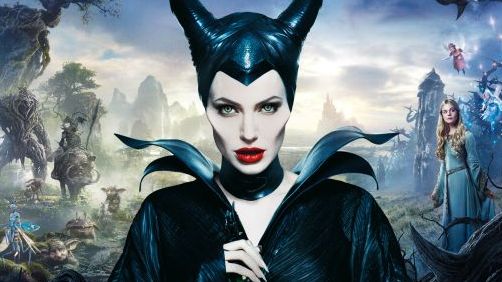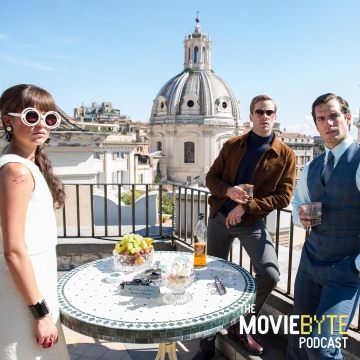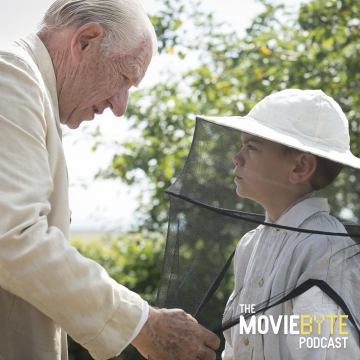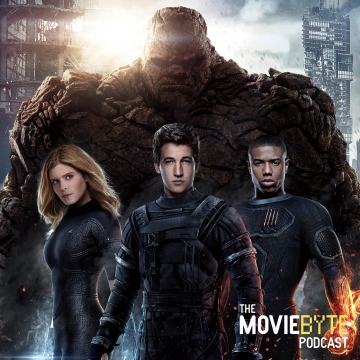
Once upon a dream, Disney brought us the tale of Sleeping Beauty, but according to their latest film, they may not have been entirely truthful in that story they told us, and now they’re here to set the record straight.
To be sure, the film has its detractors. Maleficent‘s box office success is only eclipsed by the exceedingly harsh reviews — though not nearly as harsh as Angelina Jolie’s cheek bones as the titular character.
The film proposes to us that things in the once upon a time may not be all that we have been led to believe. And so we are taken on a journey through the childhood of a fairy named Maleficent. She grew to be the strongest of the fairies and was the protector of the forest kingdom. In the course of this journey, we see she was betrayed by the one she most loved. This leads her to do that evil deed she is known for in Disney’s animated film Sleeping Beauty. But those good fairies, let’s just say they may be a bit more inept than we were led to believe.
And through it all, Maleficent is on a journey from naiveté, to betrayal, and ultimately to redemption.
I do not agree with those critics who are panning this film so hard. There’s a lot to like here, and the first obvious place to start is with the film’s namesake.
A New Maleficent
Angelina Jolie was perfect for this role. She looked the part to a large extent — although she obviously has more beauty than the austerely drawn and fairly ugly wicked witch style Maleficent of Sleeping Beauty. But more than just her looks, Jolie’s performance is magnificently stunning. From the smallest of things in the way she uses the word “beastie” to describe little Aurora to the wonderfully beautiful, cold, chilling smile she gives to king Stefan, her performance is basically perfect.
In this film Maleficent is both villain and hero, and the film itself describes her as such. Gone are Disney’s notions of a black and white world where characters are either friend or foe and such partition is never to be breached. In many ways I find that to be for the better. I’m into films for the journey, for the characters, for the story, for the redemption. Redemption is woven throughout the core of human existence in this world, and as such stories feel much more true, much more relatable when they have the same theme. And this is a film that really lets us get into Maleficent’s skin. We feel her joy of life as a child, we love Stefan with her and we feel the stinging betrayal. We feel the pain when her wings are cut from her body. We empathize with the wrath that made her act in a villainous way to an innocent party. We feel her sorrow for the wrong she has committed and her love for Aurora. And we rejoice with her in the film’s resolution. Maleficent’s journey was quite a wonderful ride indeed.
The Sleeping Beauty
Elle Fanning is another asset to this film and she does it well. Aurora takes a bit of a back seat in this film, and I’m not really complaining about that, but I do wish she would have gotten a bit more screen time here because I found Fanning to be delightful in the role. It was not sweet, sappy, and syrupy as in the animated classic. There was not a lot of love at first sight stuff — although the prince did make an appearance. But Aurora’s personality and infatuation with nature and the animals was still intact.
She gleefully tells Maleficent that she always knew she had a fairy godmother watching over her, and she knew Maleficent was that godmother. Her trust is complete and Fanning’s acting ability shines clearly when she learns of what Maleficent did to her as a baby. The betrayal and reaction to it is perfect.
King Stefan
Here is where I have a bit more trouble with the film. Though Sharlto Copley is great as ever, the role he is playing has a few problems. You see, the young Stefan is just a peasant who falls in love with the young fairy Maleficent. But then we skip a few years and a voice over describes to us that things have changed — that Stefan is now more ambitious and there’s not much he wouldn’t do for power.
When the King’s assault on the forest and Maleficent fails, he calls for any able-bodied man to dispatch Maleficent so that he might make that man king and give the victor his daughter. So obviously, Stefan must betray Maleficent, though he can’t bring himself to kill her. So he takes her wings instead. Obviously this enrages afore mentioned fairy Maleficent.
Stefan then regresses throughout the film into a bumbling fool full of paranoid delusions and no clear plan to deal with Maleficent (and perhaps if maybe he had not betrayed her in the first place none of this would have happened). The trouble with all this is I didn’t buy a bit of it. The entire character, the transition he goes through, the things he does, all seem forced. And as with the original story, I don’t buy the whole “send my little girl off to live in the woods where Maleficent is sure to find her” thing. I mean it’s a good thing he did according to this story so that Maleficent could come to love Aurora, but I don’t buy it for the character Stefan. Nothing he does after childhood makes much sense in this film.
Where Were The Fairies?
I think perhaps my primary issue with this film were the three fairies we are likely to remember from the animated film. Here they are inept, bumbling, silly, and whiney. Not that they weren’t some of these things in the original story, but just that here, it seemed very grating. And for the most part, they are almost entirely absent during Aurora’s years of growing up. It would not have hurt the film to have them a little more involved.
The Stroke of Genius
I’m going to spoil one of the big plot resolutions here, so be prepared for that. I think the particular resolution which I am about to describe is one of the film’s strokes of brilliance. If I had given it a little thought I might have seen it coming. As it was, I was so busy trying to figure out how this version of the tale was going to connect Aurora with her prince that I did not quite see it coming until right before it was happening.
The curse that Maleficent placed upon the princess was that she would prick her finger on the spindle of a a spinning wheel and fall into a sleep like death. The only thing that would wake her was true love’s kiss. She never once specified that it must be a romantic love. It could be another type of love. But of course, until this moment, we and the characters are all only thinking of romantic love and a full on lip kiss. Aurora did indeed meet the prince in the forrest. And the three fairies hustle him in to kiss her when she sleeps. But the film is too adult for that sort of non-sense. Aluded to at the very end of the film, Aurora and he do have a future together, but they barely know each other now and at most they could have an infatuation.
But what the film has built up to this point is a mother-like love that Maleficent has for Aurora. We saw her try to take back her curse, but the curse’s parameters were that only one power could break it. Much to her consternation and great weeping sadness, she could not lift the curse from the one she had grown to love.
And so, when the kiss of the prince failed, a teary eyed Maleficent believes she is giving one last peck on the forehead — for Aurora never had a chance to find true romantic love and so was doomed to sleep forever. But Maleficent’s true love for Aurora broke the spell.
In my estimation this was a stroke of brilliance and I loved the way it broke the stereotype without breaking good story convention.
Conclusion
While this film will not win any great awards for breaking new ground, it is a refreshing take on an old tale and has a few surprises up its sleeve. Don’t listen to the critics telling you it has no heart, it’s “a lumpy mess”, it has no substance and so on. I found this film quite entertaining, and enjoyed watching it. If for nothing else, go to see Angelina Jolie’s magnificent performance as what was once one of Disney’s greatest villains.


